Hi friends,
I’m excited to share an interview with Mary Buchanan, which was graciously organized by Lindy Giusta. Mary runs a new mental health focused lit mag called Libre Lit. Lindy is a reader for Libre Lit.
Lindy: I have seen mental health-related pieces on lit mags but never one devoted strictly to writing with a mental health focus. Can you share when you had that “aha” moment, if you did, about starting Libre? Was there a particular moment in time where the idea came to fruition or was it a long-thought-out endeavor?
Mary: I’d been going through a rough period—a month-long depression that had taken away my ability to articulate myself. It was cold outside, and I was running errands in my car. I was considering what had happened to me, how I’d gotten to yet another low point. Sometime around 8:25 am I was visited by an idea. I won’t call it inspiration, because there’d been no previous planning or desire to begin something at all—like I said, I was low and lulled half dead by my outside and inside circumstances. The vision consisted of an image: a clean website with a nearly too-large font—black and graceful lines—crisp images, and content centered around mental health narratives. I’m not making this up, despite how much it sounds like I am. The vision persisted, even as I drove through the traffic lights, and it persisted as I got out to run my errand; it stayed with me all morning until, finally, I had no choice but to write some of it down.
Lindy: How long did it take you from idea to creation and were there any bumps in the road you did not expect?
Mary: It took three or four months for the idea to come to fruition. I had several things to think about: money, time, the aesthetics of the project, which I felt was ultimately the most important thing in the beginning to get right. The façade of a project like this was going to take some real work—I ran the very real possibility of getting it wrong by glamorizing the concept too much. I was also teaching at the time, had my hands tied both financially and time-wise. It took until late May for me to really sit down and build the bones of this thing. I was also worried about its reception amongst family and friends. Who did I think I was, founding a website about something innately medical? I’m a writer and teacher and can barely add fractions. I worried I’d end up looking foolish, or worse—arrogant. While I’ve edited in the past, going around calling myself the founder and editor of something felt like a risk I wasn’t sure I wanted to take.
Lindy: Have you always had a love and passion for reading and writing? Can you share a bit about your own journey with mental health and writing and how the two have collided?
Mary: Mental illness, specifically Bipolar Disorder, is a familiar ghost I grew up alongside. At this point, the disease nearly feels like a family member. My mother—a speech writer for the governor of Mississippi—was diagnosed with Bipolar 1 when I was 13 years old. For the next 20 years, her case was mismanaged and she was forced to undergo a series of detrimental traumas that have eclipsed her life. This was the impetus I now carefully write around: they say we become obsessed with our traumas and I’d have to agree. My life has been profoundly marked by my mother’s pain. I grew into a fearful obsession around mental illness, and spent most of my teenage years covertly reading about it. My mother has been institutionalized several times: periods of punctuated pain, braving the kind of isolation that I believe no one—no matter their sins—should have to face. She’s lost years of her life and most of her formative memories due to irresponsibly rendered ECT treatments. She’s endured more pain than most men. And yet if you ask her about Coleridge’s “Kubla Khan” or Blake’s “The Tyger,” a look of deep love restores itself in her expression. She is bright and full of sharp corners and impossibly herself. She’s the most surprising person I know, and a little bit psychic to boot. Her brilliance won’t let itself be erased; I won’t let it.
In 2019, I was diagnosed with Bipolar 2. The thing, at last, had come full circle. Some of my favorite people on this Earth deal with some form of neurodivergence—most are stunningly funny, wise, oftentimes sad. We’ve been persecuted throughout history for the way our brains perform thought, relegated to the sidelines, purposefully forgotten. There’s a rather large community of us in the literary world and that’s unsurprising. We’re oftentimes at the forefront of creative waves, and I wanted to tepidly tap into that community, see if anyone was interested and willing to offer up their voice for friendly inspection.
Lindy: Can you share your favorite quote or passage you’ve ever written? Do you have any current work in progress or writing plans of your own?
Mary: I have flash fiction forthcoming in Bending Genres and Tiny Molecules in December, and a cultural essay that was just published in The Hooghly Review. I also just put the finishing touches on a lengthier short story with elements of Jewish scripture and a touch of magic. It has a strong basis in psychology, and I’m actively attempting to place it.
Lindy: Do you have a day job? If so, what do you do? How do you balance the demanding needs of a lit mag with daily life?
Mary: I have nine years of teaching experience, but I went back to school this past summer to attain my license. I’ll be wrapping up coursework this December and teaching again in a school setting next semester.
Lindy: Do you have anything you are reading or listening to recently that has inspired you?
Mary: I have been re-listening to Plath’s The Bell Jar on Audible. Due to my coursework and heavy reading load for school, I’ve been reading poetry when I can to substitute for my lack of pleasure-reading. Currently, I’m thoroughly enjoying Shira Erlichman’s Odes to Lithium, and I can’t recommend it more.
It’s difficult turning away pieces because most of what is submitted to us is based on lived experiences, and the idea of telling someone that their mental health narrative isn’t “good enough” rankles me; it keeps me up thinking at night.
Lindy: Has it been difficult selecting work for publication in Libre Lit? How has the process and work submitted to you been surprising?
Mary: It’s difficult turning away pieces because most of what is submitted to us is based on lived experiences, and the idea of telling someone that their mental health narrative isn’t “good enough” rankles me; it keeps me up thinking at night. Rejections are my least favorite part about this. I oftentimes feel that I’m unfit for this position, so when I have to send out an email declining a piece, I’m assaulted with guilt–very rarely does this editorial position feel earned.
Lindy: Can you explain your own mental health journey and the stigmas you’d love to tackle with a magazine like Libre?
Mary: I’m always surprised when I encounter someone who takes that type of stigma seriously. In this economy? At this age? In this late-stage post-apocalyptic world? I’ve become so immersed in mental health culture that I rarely ever think about bigots. Everyone has or has had or will have a mental health struggle. Out of ignorance, they may not recognize it as such at the time, but it’s there, just like the common cold is there—easily catchable, non-discriminatory. That sounds like a threat when it isn’t; what I mean to say is that we shouldn’t give those people our time.
Lindy: Having mental health struggles of my own and having shared my story on social media and in person before neurodivergence was a term that was used and when there was even more stigma and lack of acceptance, I have often been told I’m brave. Do you think it’s brave to share about mental health? What are your thoughts on that?
Mary: Brave in the way we share anything about our lives—we’re always taking a chance when we tell someone something about ourselves. I’ve been doing it for so long at this point that it’s second-nature to me, to explain, to try and capture this reiteration into a phrasing that not only brings a person closer to my experience but also productively informs. I’ve been called arrogant, crazy, dramatic, an attention-seeker, and strange. These are words people have used to describe the candid approach I attempt to take towards mental health discussions. At some point you lose your ability for embarrassment; it’s an unnecessary emotion to have when you’re an advocate.
Lindy: What are your dreams and future aspirations for Libre?
Mary: I want to be able to pay my staff for their time and hard work. I still can’t wrap my head around the fact that there are eight highly qualified professionals who are willingly using their most precious resource to help me read for Libre. I owe them everything. I also want to see Libre bloom into a substantial resource for mental health writing and art. I have a list of ideas, but a few include fostering affiliations with like-minded organizations and representing ourselves at AWP in the not-so-distant future.
Lindy: Your social media, graphics, and website are very aesthetically pleasing and unique. Do you have an art background as well?
Mary: I’ve spent years on Canva for previous positions I’ve held, and I have an obsessive bent to my personality that I can’t ignore when you get me in front of a good-looking font. I wanted Libre’s graphics to be unusual in order to draw further attention to what we’re publishing. I sometimes put too much value in aesthetics, but I’ll make the argument that good writing should also be accompanied by equally good art. I recently passed my Praxis exam for Art Content, and I’m looking forward to applying what I’ve learned to the face of Libre.
Lindy: What is one piece of advice you can offer our readers who may struggle with mental health, have a neurodivergent loved one, or who have a new diagnosis?
Mary: My advice is useless. Most is when it comes to this kind of pain. Mental illness can break a life in half. What often follows in its wake is tragedy. Do your best to seek out the best healthcare professionals possible. Listen to them. Remember to take your meds. When it gets to be too much—and it will, often—have on handy a roster of individuals who have shared your condition and focus squarely on them. I’ve found that reading about someone else’s pain goes a long way in blunting my own—not because I wish it on them or am glad they experienced it but because there is comradery in a shared diagnosis, a bond that’s flexible enough to transcend arbitrary notions of time or a book’s pages. I’ve turned to St. Dymphna before as well. Look her up if you’re unfamiliar with her story. She is Saint of Mental Health and Nervous Disorders. A year and a half ago, after a decade of what I refer to as my hopeful agnostic phase, I rediscovered my spirituality. It’s been a gift to place my faith in the ephemeral.
Mary Buchanan is from Mississippi whose writing flirts with topics centered on mental health, spirituality, and magic. She is a writer, educator, and occasional tarot card puller. She holds a B.A. in English Literature from the University of Mississippi, and an M.F.A. in Creative Writing in Fiction from Louisiana State University, where she served as graduate prose editorial assistant for The Southern Review. She published her first collection of short stories, Shoulder Bones, in 2014 with Blooming Twig Books. Her graduate thesis, a hybrid novel, Rapunzel Has Insomnia, was a finalist for the University of New Orleans Publishing Laboratory Prize. Her fiction and nonfiction have appeared or are forthcoming Bending Genres, Erato Magazine, Anti-Heroin Chic, Hobart, Brilliant Flash Fiction, Tiny Molecules, Vol. 1 Brooklyn, The Razor, Psychopomp, Flash Fiction Magazine, Third Point Press, Sidereal Magazine, Mississippi Magazine, among others.
Lindy Giusta is a Brooklyn-based queer visual artist and lover of the arts. As a former librarian, Lindy loves reading, writing, and all things literary-related. Lindy also loves playing the mandolin, reading lit mags, going down rabbit holes researching indie presses, going on NYC adventures, and drinking copious amounts of coffee. She also loves her two pet rabbits and cats and is a big animal lover.
Subscribe to see more guest posts from WRJ’s amazing contributors / Paid access includes opportunities for editorial feedback and free submissions for upcoming issues.

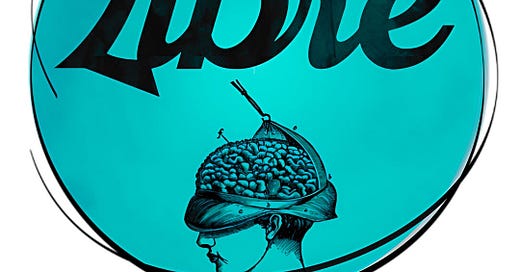

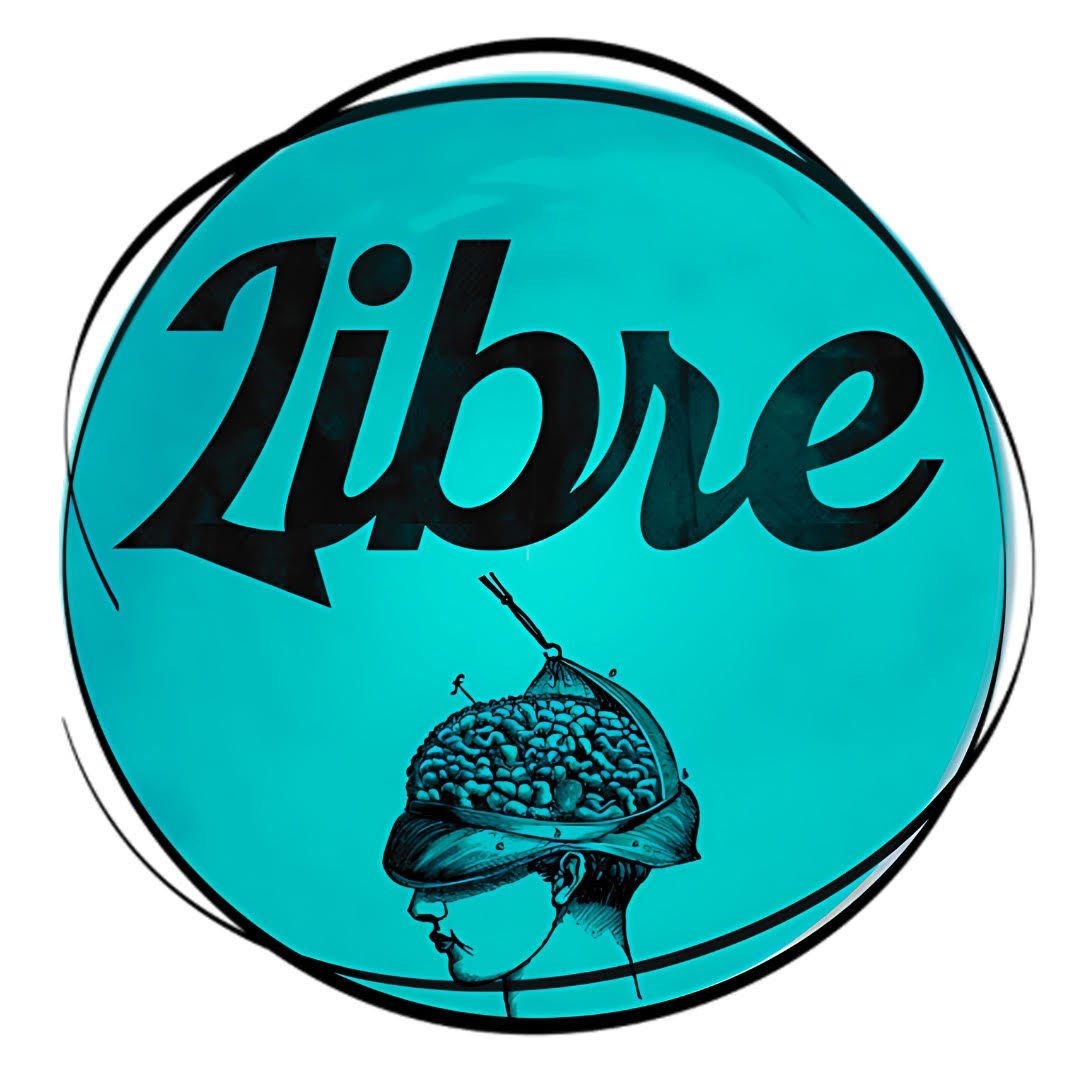

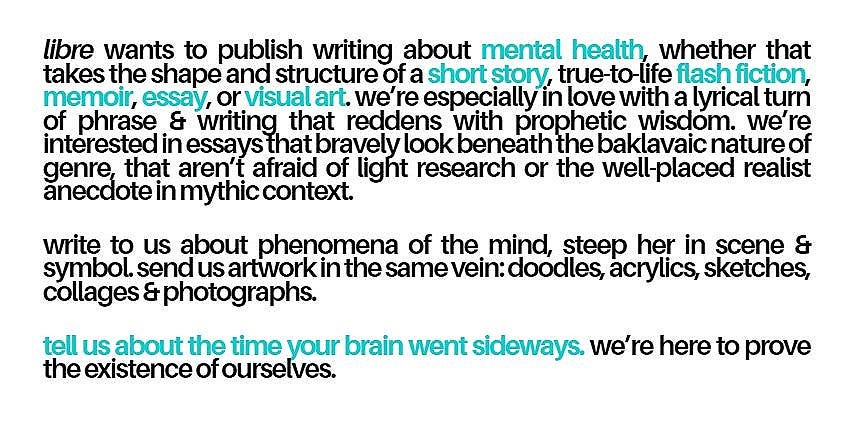
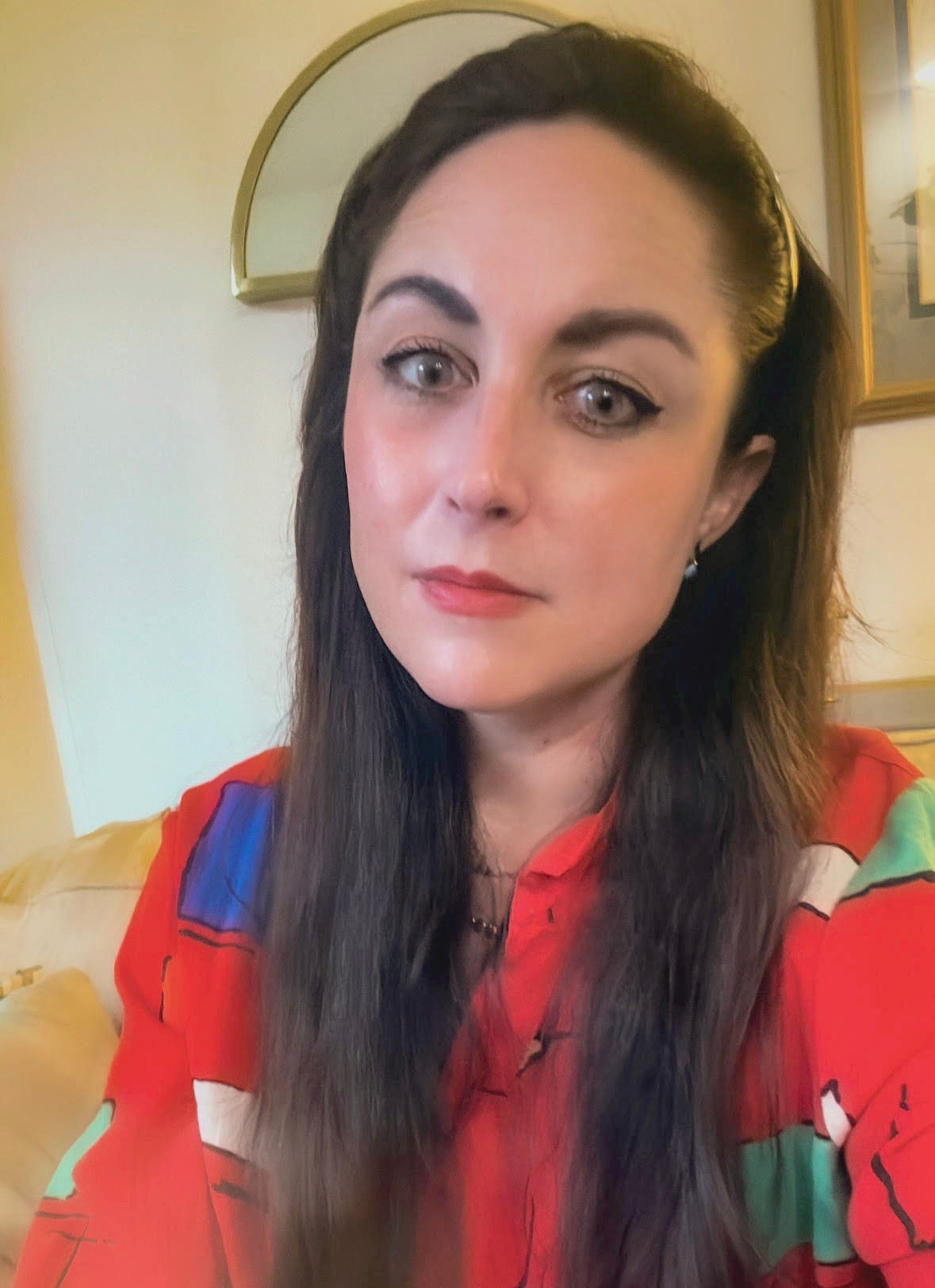
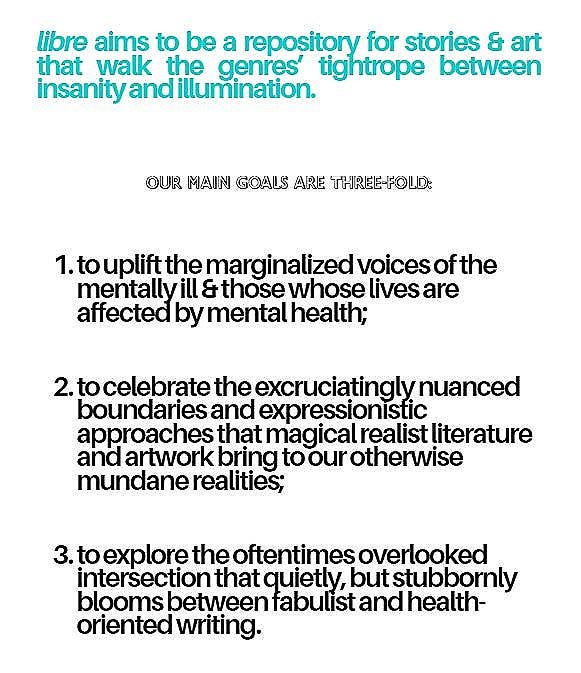

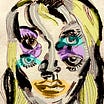
Love this.
A brave & thoughtful interview. Thank you for sharing this.